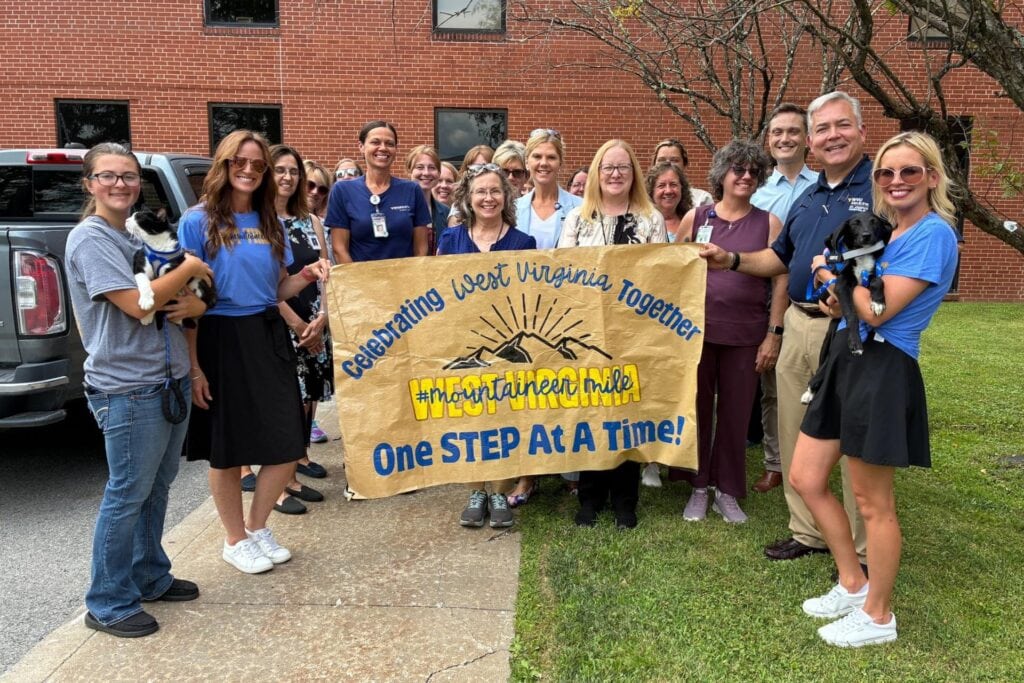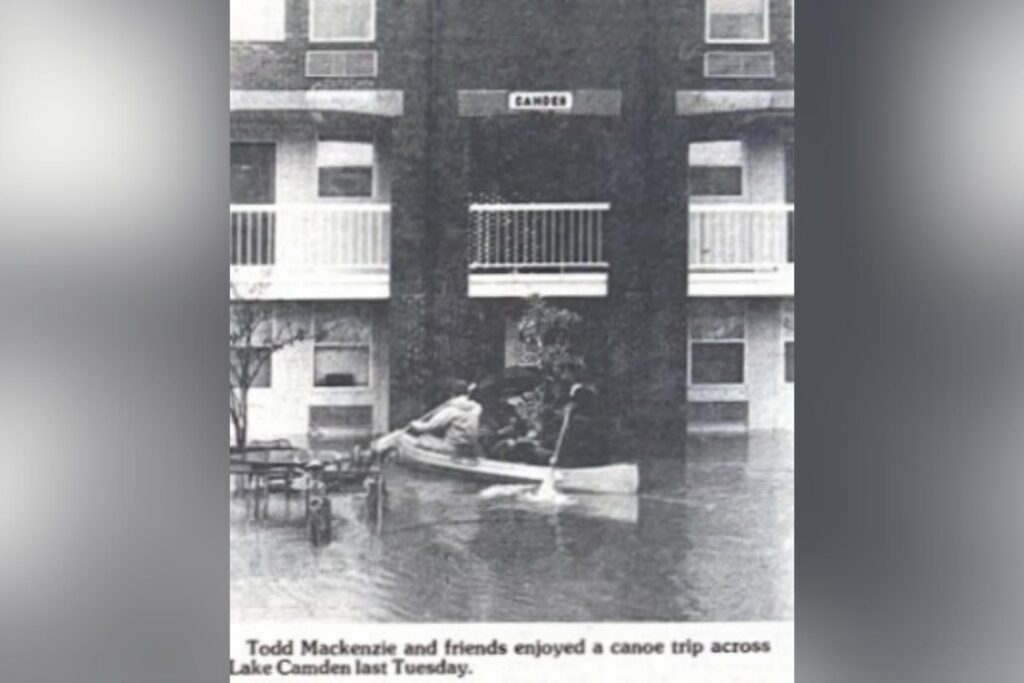Editor’s note: This story was originally published by Mountain State Spotlight. Get stories like this delivered to your email inbox once a week; sign up for the free newsletter at https://mountainstatespotlight.org/newsletter
By Ellie Heffernan, Mountain State Spotlight
DAVIS – It’s always been tough working as an emergency medical technician in Tucker County. Shifts last 24 hours. The closest hospital is always in another county, sometimes in another state. And since Tucker County has one of West Virginia’s lowest population densities, its EMTs cover a lot of ground. Houses and people are spread out, making it hard to quickly reach them — in situations where every minute counts.
But things have gotten worse in the last year.
“A lot of people have left because there’s just the uncertainty. You don’t know if there’s going to be money here for us to keep a job,” said EMT Steven Mitchell.
Tucker County isn’t alone in this regard; across the state, EMS agencies have been struggling financially and bleeding employees. Nearly 11,000 medical first responders left the profession between 2011 and 2016, in what the state’s EMS director previously called a “mass exodus.” And a patchwork funding system has meant counties with dwindling revenue have had a hard time maintaining emergency services for residents.
Until June, Tucker County paid for much of its emergency medical services through a $50 ordinance fee that every taxpayer was supposed to pay annually. Then county commissioners abolished the fee by a 2 to 1 vote, contributing to a nearly $400,000 budget shortfall. Although the county tried passing an EMS levy — an additional tax — to cushion the blow, it failed by just over 200 votes.
Now, officials are trying to pass another EMS levy, which will be on this November’s ballot. EMS levies are also on the ballot in four other West Virginia counties — Monongalia, Calhoun, Putnam, and Brooke. In all, nearly half of the state’s counties have some sort of local levy on the ballot, including measures to funnel additional money to schools and libraries.
As West Virginians statewide vote on these county-level measures and a constitutional amendment that could slash property taxes, Tucker County shows the consequences of defunding local governments.
The impact of EMS budget cuts
The stakes are high, and perhaps that’s why the mood felt so somber as the Tucker County Ambulance Authority made its case for the levy last week at the Davis Fire Hall. It was the third meeting to discuss the levy they’d held in the last month.
Roughly twenty people sat in folding chairs, listening to county officials. A blue bingo board hung on the wall, alongside an American flag.
“Remember, this is our lives,” said Dennis Filler, president of the ambulance authority. “Strokes? We don’t have very long to do certain things on strokes. Breathing? How long can you not breathe for? A few minutes before you suffer irreparable damage. Time is of the essence.”
The situation has become more serious in recent months. Previously, Tucker County had at least two EMS crews on constant call. But after commissioners abolished the ordinance fee in June, some EMS workers left preemptively, concerned that funding cuts would eventually lead to them losing their jobs. Now, most days a week, a single crew of two EMS workers is responsible for a county of nearly 7,000 people.
This bare bones staffing means the single crew often can’t help someone fast enough because they’re in the middle of transporting another resident — or on the other end of the county. That’s left Tucker County to rely more heavily on nearby counties, asking their EMS workers to pick up the slack. Tucker County EMS made more calls to other counties in the three months after the ordinance was abolished than they did during all of 2021.
But despite the urgency presented by underfunded emergency medical services, some of the audience members who showed up at the Davis Fire Hall last week were skeptical. They seemed open to voting for the levy, but asked the presenters pointed questions.
One man asked how EMS could be underfunded, if his recent ambulance bill cost $900. Another asked whether the ambulance authority could use volunteers.
One woman criticized the state for not using its budget surplus to help Tucker County:
“If they have all this excess money that they’re bragging about, then they should be helping their own counties and communities in the state,” she said, voice rising as the audience applauded loudly.
Searching for additional funding
The county has searched for more stable funding sources, but there’s not much help to be found at the state level, said County Commissioner Lowell Moore, who also spoke during the meeting at Davis Fire Hall. Moore voted against abolishing the EMS ordinance fee.
“I’m not going to just leave Tucker County hanging,” Moore said, during the meeting. “I intend to be active. And I do intend to go to Charleston this year again and work for EMS. I do my best to help Tucker County. I was born and raised here, and I’m definitely gonna die in Tucker County.”
Moore helped push for a bill that would’ve amended the state’s amusement tax laws, but while it passed the Senate it didn’t make it through the House during this year’s legislative session. Right now, only cities and towns can impose amusement taxes, and giving counties a similar power could’ve made a big difference in Tucker County, which has a large tourism industry.
The Tucker County Commission also asked the state’s Office of Emergency Medical Services to come assess their problem, but state officials didn’t provide any financial assistance. They did recommend that Tucker County “build a shared vision and support for EMS ” — and reinstate the $50 ordinance fee.
But it seems unlikely that will happen. County Commission President Mike Rosenau said he voted to get rid of the ordinance fee because it was unfairly imposed by just three residents – the county commissioners. Rosenau said he does support funding Tucker County EMS through a levy, because it would leave the decision up to voters.
If it fails, Rosenau said he doesn’t intend to create another EMS fee.
“The alternative plan is we’ll fund the one crew, because that’s what we have the funding for,” he said. “We’re a poor county, and we’re a small county. So if the people support the levy, which I hope they do, then we’ll have the funding for two crews.”
Even if the November levy passes, that won’t immediately fix Tucker County’s EMS funding problem, since no funding would come from it until next September. In the meantime, the ambulance authority has tried to bridge their funding gap by mailing donation requests to county residents.
“Anyone could need an ambulance at any time,” said Alexa White-Rayborn, a Thomas resident who received a donation request in the mail. Nine months pregnant and roughly one week away from her due date, White-Rayborn will need to leave the county to give birth in a hospital.
“I think that it’s concerning that they could potentially not have enough funding to save somebody’s life,” she said. “I very well could need an ambulance.”
Reach reporter Ellie Heffernan at ellieheffernan@mountainstatespotlight.org














